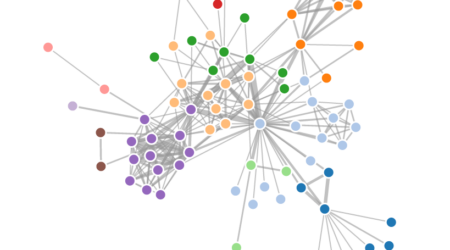In a recent study published in the journal Science, a team led by UC Berkeley economist Paul Gertler found that malnourished Jamaican toddlers who received weekly play sessions with health workers earned 25% higher wages than their peers, 20 years later. The report, Labor Market Returns to an Early Childhood Stimulation Intervention in Jamaica, illustrates that investing in young disadvantaged children can have an enormous payoff—enough to compensate for the initial disadvantages, and perhaps enough to pay for such an intervention economically.
This study is the most recent in a series that began in 1986, when four researchers (including two collaborators on Gertler’s study) began following a group of 129 poor Jamaican toddlers (ages 9-24 months) whose growth had been stunted due to being undernourished. Previous research had suggested that children in this situation could physically recover by taking nutritional supplements, but this did little to offset the toll taken on cognitive development.
The researchers wanted to know whether the toddlers’ mental development could be restored by an early childhood psychosocial intervention. They devised a tightly controlled longitudinal study in which the toddlers were randomly split into four groups. For two years, each group of children was treated differently by health workers.
A quarter of the children were given both a daily nutritional supplement and psychosocial intervention in the form of weekly one-hour play sessions with community health aides. During the play sessions, the aides taught the mothers how to play with their children in a way that promoted development. The lessons included interactions such as playing with educational toys, responding to vocalizations, describing the surrounding environment, reading books, looking at pictures, and playing pretend games.
One quarter of the children received only the weekly play sessions, and another quarter were only given nutritional supplements. The remaining control group received no treatment at all.
When the toddlers were revisited at age 17-18, those who had received the psychosocial intervention had higher IQ’s, were better readers, and had larger vocabularies, irrespective of whether they had received the nutritional supplements. By age 22, those who had received the psychosocial intervention were also less prone to violent behavior and depression.
Gertler’s team was the first to assess the economic impact of the intervention; they asked, did the group that received the psychosocial intervention earn more money in adulthood? The results were stunning: by around age 22, those who had received weekly play sessions as toddlers—requiring just one hour per week of treatment for just two years—earned an average of 25% more than those who had not, enough to catch up to the non-stunted general population.
The study’s results strongly suggest that early childhood intervention for the disadvantaged is not only ethical, but also economically prudent. The findings have important implications for policymakers (and their constituents) pondering whether to fund public early childhood education and mental health programs, especially in low income areas.



